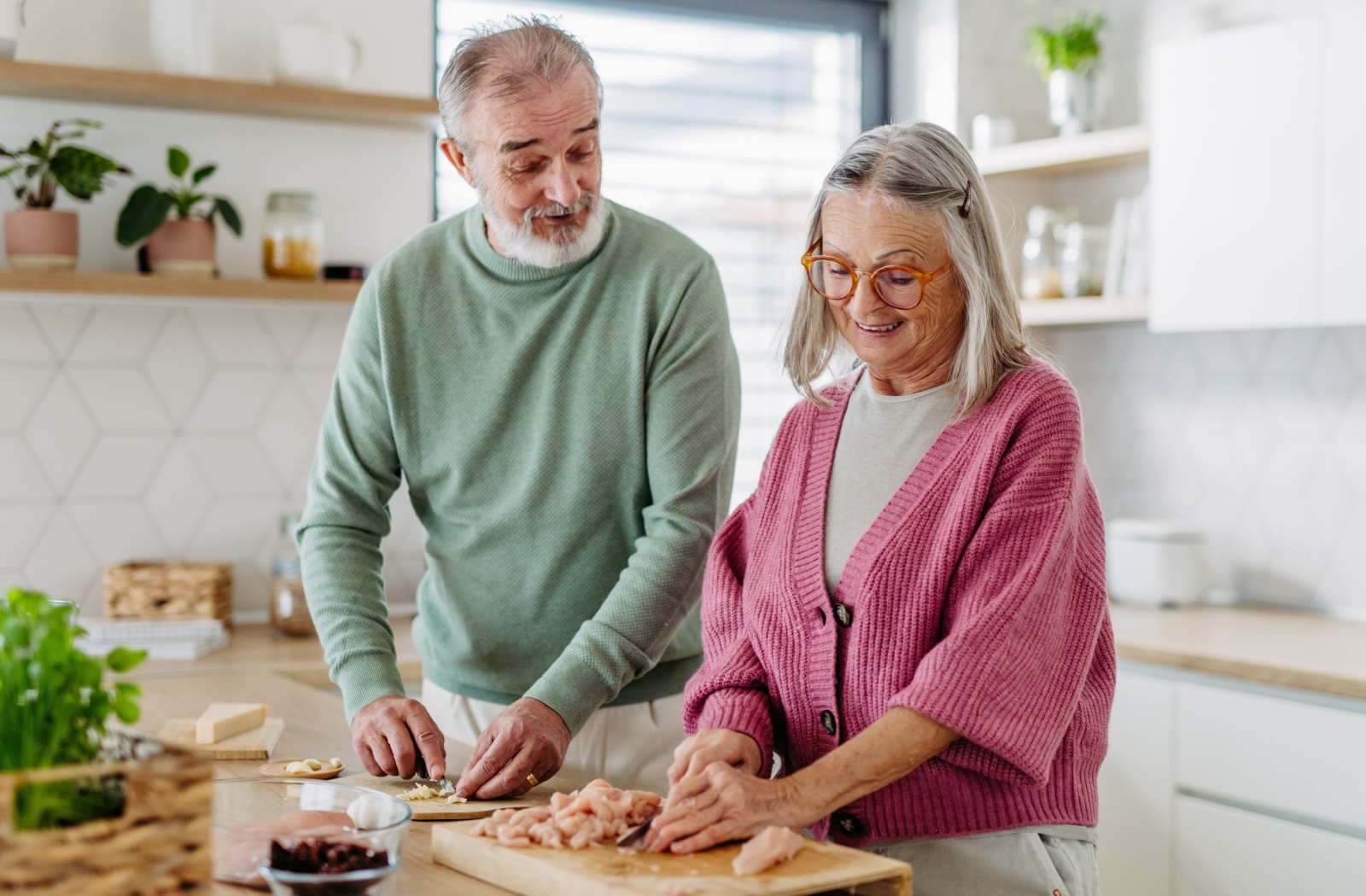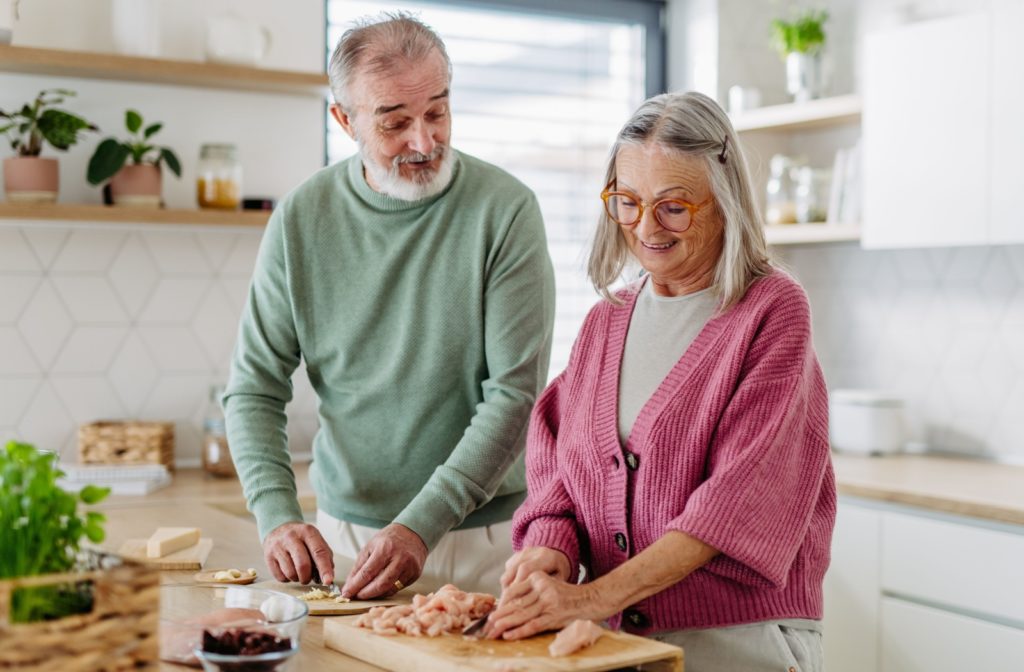For seniors, diet is the foundation of a healthy lifestyle. It’s the first building block of staying active, healthy, and well. However, it’s also easy to fall into a habit of eating foods that aren’t always the healthiest choices. Fortunately, there are special diets—like keto—that can help.
The keto diet is safe for seniors, though specific circumstances may make it more or less ideal. It can be an effective way to lose weight quickly, but the diet can be restrictive. Careful planning and proper guidance are key to staying healthy on keto. Before making any significant dietary changes, seniors should consult a medical professional to determine if keto is a safe choice.
What Is the Keto Diet?
The ketogenic diet, often just referred to as keto, has attracted significant attention over the years. It’s a high-fat and low-carb option that changes how the body metabolizes food. At its core, the keto diet focuses on bringing the body into a state called ketosis.
Ketosis occurs when the body switches from using carbohydrates as its main energy source to burning fat instead. The result is the production of ketones, which the body uses as an alternative form of energy rather than relying on glucose from carbs.
To reach ketosis, a person needs to consume most of their calories from healthy fats and proteins rather than carbohydrates. The goal is to limit as many carbs as possible to change how the body processes fat.
What Can You Eat on the Keto Diet?
Adopting a keto diet means making significant dietary changes. The focus is to eat foods low in carbs but plenty of fats and proteins.
Some examples of keto-friendly foods include:
- Fatty fish like salmon or mackerel
- Meats such as beef, chicken, and pork
- Non-starchy vegetables like spinach, zucchini, or cauliflower
- Healthy fats like olive oil, coconut oil, or avocado
- Full-fat dairy options such as cheese or unsweetened yogurt
Your loved one will have to steer clear of starchy foods like bread, pasta, rice, and most fruits. Sugary snacks and drinks are also off the menu. Proper meal planning makes the keto diet much easier—by working variety into meals, it’s much easier to sustain this diet.
Does the Keto Diet Work?
When in ketosis, the body begins burning fat reserves. This makes keto an extremely effective way to lose a few pounds quickly, and many people find it a great option.
However, it can sometimes be difficult to stick to keto long-term. The diet can be restrictive—you must avoid most easy-to-access snacks and meals. The meals you can eat may become repetitive, so it helps to change things up where possible.
For seniors, there have to be additional precautions before beginning the keto diet. When in ketosis, the body can be more sensitive. Your loved one will need to monitor their blood sugar levels if they have diabetes or are on medication. It’s also important to pay attention to any heart conditions as the high-fat content in keto may impact cholesterol levels.
While the keto diet has grown in popularity, it’s not magic. It requires careful planning and understanding to stay safe—especially for older adults trying it for the first time. The sudden change to ketosis can cause certain symptoms that may be overwhelming if your loved one isn’t prepared.
Side Effects of the Keto Diet
A common challenge keto dieters face at first is something called the keto flu. This is a temporary phase, but it can be frustrating and uncomfortable. It’s nothing severe—it’s just the body switching to ketosis and adjusting how it processes and uses energy.
The symptoms of the keto flu typically include:
- Fatigue or lethargy
- Headaches
- Nausea
- Dizziness
- Trouble sleeping
These effects are usually manageable and resolve quickly for most people. For seniors, it may take a little longer to adjust—the metabolism can be tricky. Staying hydrated and adding electrolytes can help reduce the side effects. Over time, your loved one’s body should adapt, and these symptoms subside.
However, being proactive is key. If your loved one reports lingering discomfort or concerns, encourage a visit with a healthcare professional to determine if adjustments are needed. While keto can be extremely effective, there are alternative solutions that can be just as helpful.
Live a Healthy Lifestyle
Finding a diet that works should always reflect your personal needs and goals. For seniors, it’s about keeping a balance that nourishes your body while fitting your lifestyle. Older adults deserve a healthy and supported lifestyle, and our team at Heritage Pointe Senior Living is here to support your loved one every day. Schedule a tour with us today to learn how we can help!


